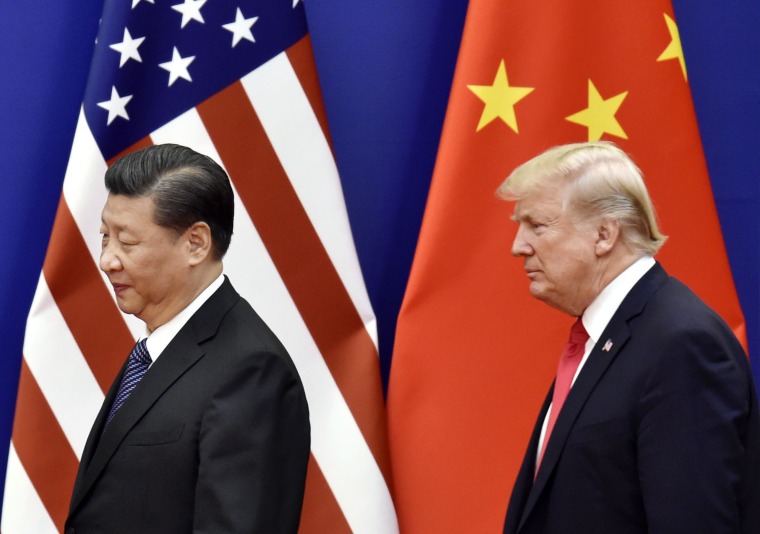Donald Trump is scheduled to meet Chinese President Xi Jinping at the G-20 summit on Saturday in Buenos Aires, and a reporter asked the American president how he's preparing for the talks in the midst of an escalating trade dispute.
"I'm very prepared," the famously unprepared president declared. "I've been preparing for it all my life. You know, it's not like, 'Oh, gee, I'm going to sit down and study.' I know every ingredient. I know every stat. I know it better than anybody knows it.... It's not a question of preparing."
One starts to get the impression that Trump isn't a homework kind of guy.
Regardless, the New York Times reports that the Republican has begun rethinking his negotiating position.
President Trump is projecting a steely facade as he prepares for a critical meeting on trade this weekend with President Xi Jinping of China. But behind his tough talk and threats of higher tariffs is a creeping anxiety about the costs of a prolonged trade war on the financial markets and the broader economy.That could set the stage for a truce between the United States and China, several American officials said, in the form of an agreement that would delay new tariffs for several months while the world's two largest economies try to work out the issues dividing them.
That would almost certainly be a positive development for all involved, though working out "the issues dividing them" is tougher than it sounds -- in part because there's no meaningful agreement about what those issues are.
In an interview this week with the Wall Street Journal, Trump was asked what, specifically, he'd like to see Beijing do. The American president said, over and over again, that he wants a "fair deal," but when pressed to explain what that might look like, Trump said effectively nothing.
The problem is not limited to the president. Annie Lowery recently wrote for The Atlantic that Chinese trade negotiators are "confused" by the Trump administration and its position: "American officials raise issues only to later drop them. They contradict one another. The ideological warfare within the White House, as well as the lack of experience on the international economic team, has left China and others unsure of U.S. policy, or even its goals."
On some occasions, China has been publicly explicit on this point. Cui Tiankai, the Chinese ambassador to the United States, recently spoke to Fox News' Chris Wallace, who asked the diplomat, "Are you clear who President Trump listens to on trade issues, whether it's moderates like Kudlow and Mnuchin or hard-liners like Navarro?"
Cui responded, "You tell me.... Honestly, I've been talking to ambassadors of other countries in Washington, D.C., and this is also part of their problem. They don't know who is the final decision-maker. Of course, presumably the president will take the final decision. But who is playing what role? Sometimes, it could be very confusing."
Politico had a good piece along these lines over the summer, noting that Beijing is "increasingly mystified about what Trump really wants," convinced that the administration doesn't really have a strategy.
"We appeal our American interlocutors to be credible and consistent," Li Kexin, minister at the Chinese embassy in Washington, said in a recent speech -- suggesting China sees Team Trump's posture as neither credible nor consistent.
There's a post-policy aspect to this: Trump has convinced himself that there's a problem, but he doesn't understand it in any depth, and he's reluctant to do the work necessary to familiarize himself with the details. Instead, the American president has surrounded himself with a team that's divided against itself, making contradictory demands, and Trump is unable to resolve the conflicts because he doesn't know what they are.
"You know, it's not like, 'Oh, gee, I'm going to sit down and study,'" the Republican said last week. Maybe that's what it should be like?
Postscript: In separate interviews with the Wall Street Journal and the Washington Post, Trump insisted that the United States is "taking in billions and billions of dollars a month in tariffs" from Beijing. This continues to be ridiculously untrue, though he keeps repeating the line because he doesn't understand the basics of his own trade policy.
